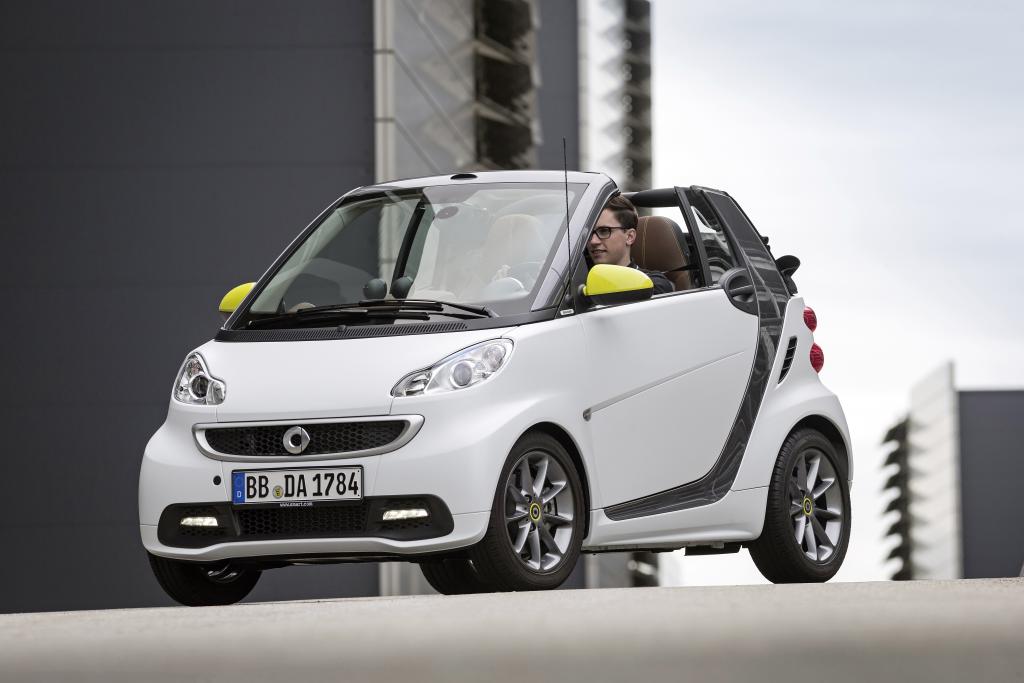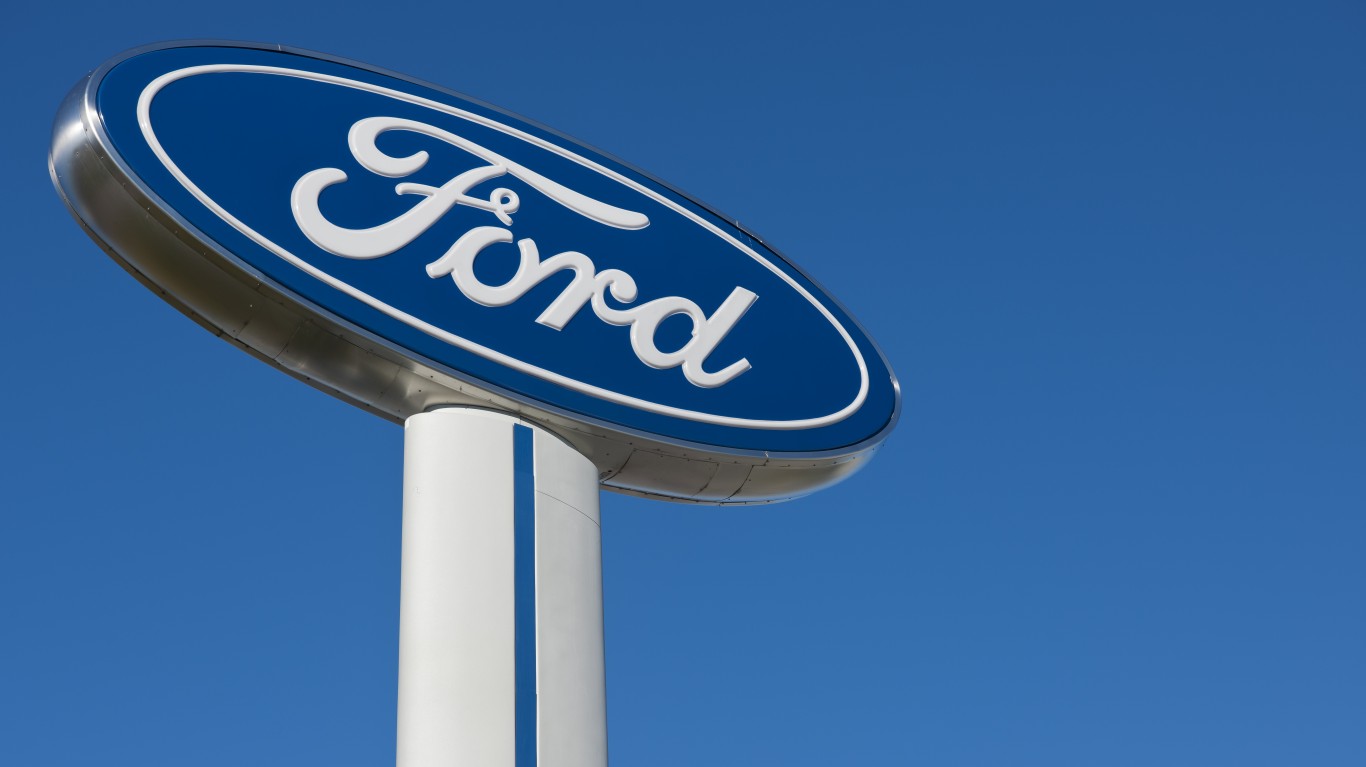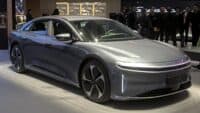What makes a car appealing to buyers? According to a recent J.D. Power report, consumers know what matters and vote with their wallets. A more appealing car commands a higher price, sells more quickly and develops customers who are loyal to the brand. Cars with low score tend to do worse in these areas.
The researchers at J.D. Power point to five broad categories: design, performance, comfort, features and style. These measures add up to a car’s score on the J.D. Power 2013 Automotive Performance, Execution and Layout (APEAL) study. 24/7 Wall St. reviewed the 10 car brands that received the lowest APEAL scores. Smart had the worst overall score, while Mitsubishi and Subaru also ranked poorly.
Click here to see the 10 car brands
As might be expected, vehicles that receive a higher APEAL score generally can demand a higher price. Customers pay an average of more than $50,000 for BMW, Audi or Porsche, the top three brands for APEAL. Most of the 10 car brands with the worst appeal have lower average transaction prices, including Scion, FIAT and smart, which are the fourth-lowest, third-lowest and lowest-priced cars, on average.
Many of the car brands with lower APEAL are struggling in the U.S. auto market. Nationally, sales are up by 7.5% this year, compared to the same period in 2012. Of the 10 brands with the lowest APEAL scores, eight grew at a slower rate or had declining sales. Sales of smart are down by 6.1%.
Some of the cars that should expect new buyers because of redesigns actually fall short. J.D. Power noted that the Range Rover, the Buick Encore and the Porsche Boxer performed much better than their segment averages following a redesign. On the other hand, the Acura ILX, Scion FR-S, Acura RDX, Subaru XV Crosstrek and Subaru BRZ did worse than their segment averages following a redesign.
The 2013 J.D. Power APEAL Study is “based on responses gathered between February and May 2013 from more than 83,000 purchasers and lessees of new 2013 model year cars and light trucks, who were surveyed after the first 90 days of ownership. The APEAL Study complements the Initial Quality Study (IQS), which focuses on problems experienced by owners during the first 90 days of ownership.” For this piece, 24/7 Wall St. also reviewed other J.D. Power surveys of brand quality. We also considered sales and average transaction price through June, 2013, provided by Kelley Blue Book.
These are the car brands with the worst appeal.
10. GMC
> APEAL score: 784 (tied-9th lowest)
> YTD sales change: +9.8%
> Manufacturer: General Motors Co. (NYSE: GM)
> Average price (June 2013): $39,942
GMC is saved by its light truck division, at least when it comes to sales. The high average price of GMCs reflects the premium that automakers receive for full-size pickup trucks in the United States. Although GMC’s score is lower than any of the other U.S. truck makers, its pickup sales rose 33% year-over-year in June, more than any other pickup maker. GMC’s APEAL score may not be very high, but sales are strong.
Also Read: The Worst States to Be Unemployed
9. Chrysler
> APEAL score: 784 (tied-9th lowest)
> YTD sales change: -2.3%
> Manufacturer: Chrysler Group LLC
> Average price (June 2013): $30,011
Nearly half of Chrysler brand sales come from the company’s Chrysler 200 midsize sedan. Those sales have increased 8.6% year-to-date. The less impressive fact is that those sales represent barely 75,000 units, way behind competing models like the Toyota Camry and the Honda Accord. The brand’s minivan, the Town & Country, is seeing a bit of an uptick in sales, but sales are still anemic, with only around 60,000 units sold so far this year.
8. Fiat
> APEAL score: 781
> YTD sales change: +4.4%
> Manufacturer: Fiat SpA
> Average price (June 2013): $20,372
Fiat sold just 4,050 cars in the United States in June, and it has sold just 21,612 total to date in 2013. Year-over-year, June sales are up just 1.1%. The average purchase price of a Fiat is the third-lowest among all car makers. Fiat sold 11,000 vehicles in the U.S. and Canada in the first quarter of 2013, up only slightly year-over-year. Fiat has tinkered with its Fiat 500 and 500 Cabriolet, and introduced the Abarth model in the U.S., but the early appeal of the car has not held up.
7. Scion
> APEAL score: 778
> YTD sales change: -0.3%
> Manufacturer: Toyota Motor Corp. (NYSE: TM)
> Average price (June 2013): $20,182
Toyota designed and built the Scion for the U.S. market, with the first models delivered in 2003. According to Kelley Blue Book’s Karl Brauer, Scion had a “few peaks early when the brand was introduced, but it has never delivered like Toyota wanted it to.” Sales of new Scions are down by nearly 25% in 2013, compared to the same period in 2012, more than any other auto brand marketing cars in the country. Based on average transaction price, Scion is the fourth-cheapest brand in the APEAL survey.
6. Toyota
> APEAL score: 776
> YTD sales change: +5.8%
> Manufacturer: Toyota Motor Corp.
> Average price (June 2013): $27,946
The world’s largest carmaker by vehicles sold posted its best year of the past five in fiscal 2013. Net income rose to $9.7 billion for the year, with a big assist from the weaker yen. The company also launched a redesigned Corolla, the company’s second best-selling car in the United States. American sales were hit hard last year by recalls and the lingering effects of the 2011 tsunami on the company’s suppliers and Toyota’s manufacturing plants in Japan.
5. Mazda
> APEAL score: 776
> YTD sales change: +0.8%
> Manufacturer: Mazda Motor Corp.
> Average price (June 2013): $23,582
Mazda posted its first yearly profit in five years in the fiscal year just ended in March. Sales in the United States, however, have been weak. The company’s North American division posted a loss of more than $500 million in fiscal year 2013, worse even than the $427 million loss of the year before. The company redesigned its Mazda6 this year and expects it to help turn around its North American business.
Also Read: States Sending the Most People to Prison
4. Jeep
> APEAL score: 763
> YTD sales change: -5.0%
> Manufacturer: Chrysler Group LLC
> Average price (June 2013): $33,347
The Jeep brand got a makeover of sorts in the first quarter of this year. The brand dropped the Liberty model and introduced a redesigned Grand Cherokee. June sales rose to 44,609 units, or 0.4% month-over-month, and 0.2% compared with June of last year. Based on a Jeep’s average price, the vehicle should have a higher APEAL score. This could be a case of expectations that have been raised too high by the marketing department.
3. Subaru
> APEAL score: 756
> YTD sales change: +24.5%
> Manufacturer: Fuji Heavy Industries Ltd.
> Average price (June 2013): $25,910
Unlike many of the car brands with low APEAL, Subaru is selling very well in the United States of late. Subaru’s sales have soared in the past year, which coupled with a weaker yen should boost the company’s profit. The brand’s year-over-year sales rose 41.6% for June, the best of any car maker except Jaguar, and its year-to-date sales increase trails only Cadillac and Porsche. The low APEAL score may be a function of redesigns that were not well-received by buyers.
2. Mitsubishi
> APEAL score: 749
> YTD sales change: -7.3%
> Manufacturer: Mitsubishi Motors
> Average price (June 2013): $23,559
Mitsubishi is one of the 10 largest of Japanese automakers, and the company’s North American market share is a scant 0.4%. Mitsubishi has only sold 30,469 cars in the United States so far this year. The company projects a 48% jump in profit in its 2014 fiscal year, which began on April 1. The bad news is that the increase in profits is expected to be largely due to a weaker yen and not to more appealing cars. The Outlander and Outlander Sport compact crossover models are selling well, but the company sold less than 20,000 of these models year-to-date.
Also Read: Car Brands with the Most Loyal Drivers
1. smart
> APEAL score: 739
> YTD sales change: -6.1%
> Manufacturer: Daimler A.G.
> Average price (June 2013): $17,245
Smart is the least expensive car brand on the list, and its low APEAL score likely is due to a lack of power, comfort or street appeal of the brand. The manufacturer, Daimler, reported a second-quarter net profit last Wednesday of $6.04 billion, but only about $1.38 billion was attributable to the Mercedes-Benz division, which also includes sales of smart. That is a dip of 22% from the second quarter of 2012. According to Karl Brauer, senior analyst at Kelley Blue Book, smart also is not selling well of late because it does not offer the now-popular small SUV body style.
In 20 Years, I Haven’t Seen A Cash Back Card This Good
After two decades of reviewing financial products I haven’t seen anything like this. Credit card companies are at war, handing out free rewards and benefits to win the best customers.
A good cash back card can be worth thousands of dollars a year in free money, not to mention other perks like travel, insurance, and access to fancy lounges.
Our top pick today pays up to 5% cash back, a $200 bonus on top, and $0 annual fee. Click here to apply before they stop offering rewards this generous.
Flywheel Publishing has partnered with CardRatings for our coverage of credit card products. Flywheel Publishing and CardRatings may receive a commission from card issuers.
Thank you for reading! Have some feedback for us?
Contact the 24/7 Wall St. editorial team.




